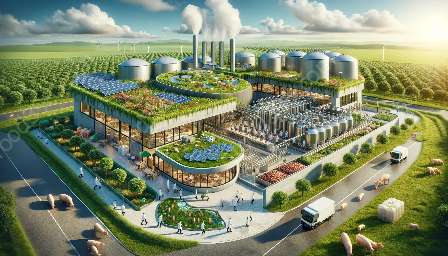Meat by-products play a significant role in the economy and the food industry. Their market potential and impact on waste management are areas of increasing relevance. This article aims to explore the economic value and market potential of meat by-products, connecting the topics of waste management and meat science. By understanding the opportunities and challenges within this sector, we can gain insights into the sustainable utilization of meat by-products.
The Significance of Meat By-Products
In the meat processing industry, by-products refer to the non-carcass parts of slaughtered animals that are not consumed as meat cuts. These include organs, bones, blood, and various tissues. While these parts may not be conventionally considered as prime food products, they hold immense economic value and market potential.
Economic Value of Meat By-Products
Meat by-products contribute to the economic value chain through various applications. The utilization of these by-products in food processing and pet food industries creates additional revenue streams for meat processors. Additionally, by transforming by-products into valuable commodities, such as gelatin, tallow, and bone meal, the industry benefits from diversification and cost reduction. These products find application in the pharmaceutical, cosmetic, and other sectors, further enhancing their economic significance.
Market Potential of Meat By-Products
The global market for meat by-products is expanding due to the increasing demand for animal-derived products and the implementation of sustainable practices. The potential of utilizing by-products in high-value applications, such as regenerative medicine and nutraceuticals, presents substantial growth opportunities. Furthermore, with the rising focus on environmental sustainability, the utilization of meat by-products in bioenergy production and biodegradable material manufacturing contributes to market expansion.
Waste Management and Sustainability
In the context of waste management, the effective utilization of meat by-products offers significant environmental and economic benefits. Traditional disposal methods, such as landfilling or incineration, pose challenges in terms of environmental impact and resource wastage. By adopting innovative waste management strategies, including rendering, anaerobic digestion, and composting, the industry can minimize waste generation and achieve sustainability goals.
Role of Waste Management in Meat By-Products
Efficient waste management systems not only address environmental concerns but also contribute to the creation of value-added products. Rendering, a common method in meat by-product management, involves the conversion of animal tissues into fats and proteins for diverse applications. Anaerobic digestion harnesses the energy potential of organic waste, generating biogas for energy production. Composting facilitates the conversion of organic matter into nutrient-rich soil amendments, supporting agricultural sustainability.
Advancements in Meat Science
Meat science encompasses the scientific study of meat and its by-products, focusing on aspects such as quality, safety, and functionality. Research and innovation in this field play a pivotal role in unlocking the economic and market potential of meat by-products. By leveraging advancements in meat processing technologies, product development, and quality control, the industry can optimize the utilization of by-products and enhance their value proposition.
Impact of Meat Science on Economic Value
Advancements in meat science enable the development of novel applications for meat by-products, catering to evolving consumer preferences and market trends. Through techniques such as enzymatic hydrolysis, extraction, and functional ingredient formulation, meat by-products can be transformed into high-value components with diverse culinary and industrial applications. Furthermore, the application of meat science in improving the safety and shelf-life of by-products enhances their economic viability.
Opportunities for Sustainable Innovation
Driven by research and innovation, the meat science community explores sustainable practices for utilizing meat by-products. Technologies such as protein recovery, bioactive compound extraction, and waste valorization contribute to the development of environmentally friendly solutions with economic potential. These advancements align with the industry's commitment to sustainability and support the creation of circular economy models.
The Future of Meat By-Products Industry
The intertwined relationship between economic value, market potential, waste management, and meat science forms the foundation for the future of the meat by-products industry. As consumer awareness regarding sustainability and resource utilization grows, the industry is compelled to adapt and innovate. Understanding the economic value and market potential of meat by-products, along with the integration of waste management and meat science, positions the industry to capitalize on emerging opportunities and contribute to a more sustainable and efficient food system.

